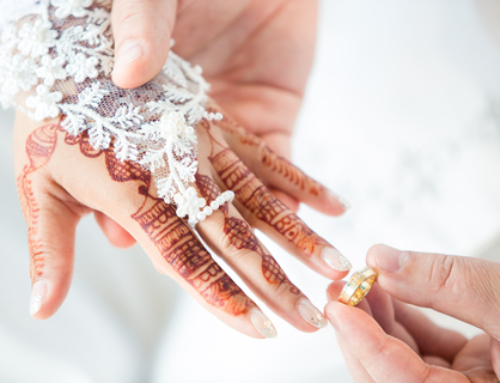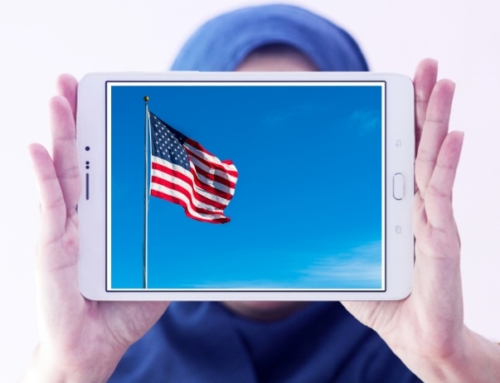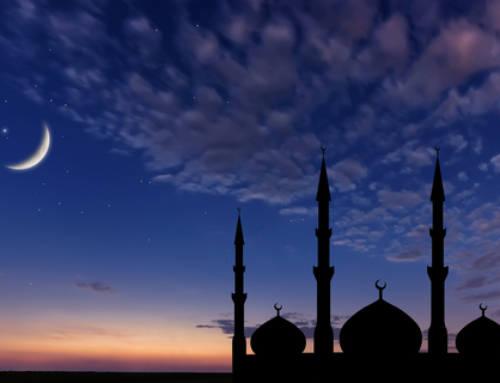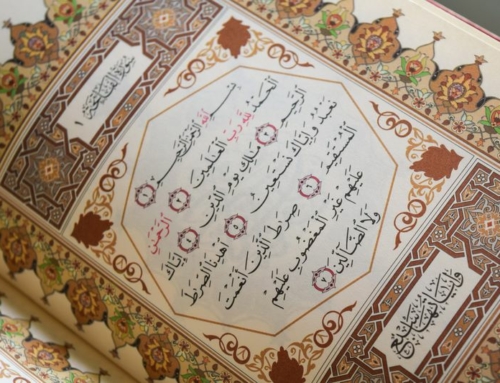Habeeba Husain
High school senior Zakia Rodriguez’s biggest dream for life after graduation was to become a professional musician.
Posters of performers covered the walls of her New Brunswick, N.J. bedroom, and sheet music was everywhere. She spent hours practicing her flute.
“That was the only thing that I was really passionate about,” Rodriguez, now 42, says.
But in about a year’s time, Rodriguez would embrace an entirely new passion—Islam.
Rodriguez hails from a small Christian household consisting of only her single mother and older brother. After coming to the United States in the 1960s from Colombia, Rodriguez’s mother did not have any desire to go back. The family spoke English at home and did not eat cultural food.
“I grew up technically Hispanic American and have the name and the look and everything, but we didn’t have a typical Colombian family upbringing,” Rodriguez says. “I’ve never been to Colombia, so I never felt any type of connection with other Hispanic girls in my school. I was never part of the ‘Spanish girl group.’”
As far as religious practice went, Rodriguez says her family “went through the motions” of Sunday church outings and holiday observances, but that was all.
“If somebody were to ask me what religion I was growing up, I would say Christian because I knew that much,” says Rodriguez. “But if somebody were to ask me why am I Christian, or talk about the history of Christianity, or even basic questions about faith and God, I really wouldn’t be able to answer.”
In her high school years, Rodriguez attended a Catholic school where she was exposed to devout people of faith for the first time.
“Being exposed to a Catholic high school for four years and having a nun as a principal and as a teacher, I saw life from a different perspective,” she says. “Alhamdulillah [all praises are due to God], I was shielded from a lot of negative things that a lot of non-Muslim teenage girls are exposed to. I honestly feel I was able to have a nice, protected, conservative upbringing.”
In college, Rodriguez had a number of Muslim girls in her classes to whom she felt drawn. She could not put her finger on what was so special, but she wanted to befriend them.
“They looked very stable and adjusted and confident in who they were. They looked like they knew what life was about,” Rodriguez says about her classmates. “There was something very different about these girls that I really admired, and I wanted to learn more about the one thing they all had in common—they were all Muslim.”
The Internet began to boom during Rodriguez’s time in college. She reserved a thirty-minute slot at her school library and could not wait to search up “Muslim,” “Islam,” and “hijab” on the shared computer. She learned about the Five Pillars, concepts of modesty, and other general information about the religion.
“Everything just made sense,” Rodriguez says. “I didn’t need any convincing.”
The more she read, the more she wanted to become Muslim. The summer after her freshman year at college, Rodriguez took her Shahada (testimony of faith) and entered the fold of Islam.
“My new task for my life was to learn how to be the absolute best super Muslim that I could be.”
Rodriguez’s passion officially shifted, and she wasted no time getting started on that goal.
With a strong support system from the young Muslim community at her college, Rodriguez began to cleanse her life of anything and everything that would disrupt her new aspiration.
“One of the first things I did was…taking out big black garbage bags and throwing everything out—even my instrument,” she said. “I really wanted to do everything I could to be a good Muslim and to please Allah.”
Rodriguez says this was not hard for her. Instead, she was eager and rushing to get rid of these possessions that now offered no contribution toward her new goal. With each thing she removed from her life, she felt happiness and an adrenalin rush—for it was one step closer to achieving the pleasure of her Lord.
Not everything was easy after her conversion, however. Upon telling her mother she wasn’t going to church the morning after she accepted Islam, the news was not taken well—a shock to Rodriguez, considering her family was not exceedingly devout. For the next six months, the 19-year-old Rodriguez hid her Islam.
“It was the worst feeling to get dressed and go to church,” she said. “I remember sitting in the church service and being so scared that Allah was going to be mad at me and not allow me to be Muslim anymore, like I had failed my test.”
One day, her mother found her prayer rug. Rodriguez was not willing to compromise her religion and left the house with her backpack on her shoulders. At a payphone, she called her friend merely to vent, not expecting to be picked up and offered her friend’s home as long as she needed.
A week later, Rodriguez received a call from her mother asking her to come home.
“I had gotten very bold at this point because I had so much support from everybody,” Rodriguez said. She made clear she and Islam were a package deal. Although things were strained at first when she moved back, Rodriguez maintains a cordial relationship with her mother.
Rodriguez then began to get involved in her local New Jersey Muslim communities. She attended lectures, became vice president of her campus’s Muslim organization, volunteered at the weekend school, and eventually became a full-time Social Studies teacher at an Islamic school. She resides in her home state with her husband and two children.
While she did not fulfill her childhood dream of becoming a musician, Zakia Rodriguez gave it up as a part of her much bigger, bolder, and more beneficial dream of becoming the best Muslim she can be. Today, her story is an inspiration for all of us—there is always time to rediscover our passions and with willpower and faith, we too can live up to our highest aspirations.








